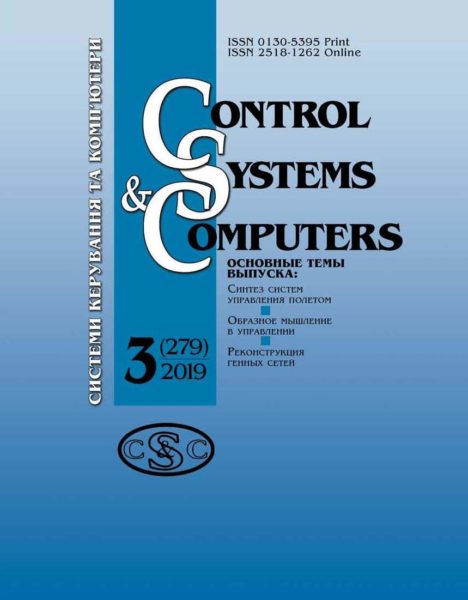Control Systems and Computers, N4, 2016, Article 4
DOI: https://doi.org/10.15407/usim.2016.04.037
Upr. sist. maš., 2016, Issue 4 (264), pp. 37-46.
UDC 004.89
Meytus Vladimir Yu., Doctor (Ph. and Math.), International Research and Training Centre of Information Technologies and Systems of the NAS and MES of Ukraine, Glushkov ave., 40, Kyiv, 03187, Ukraine, E-mail: vmeitus@gmail.com
Intellectualization of enterprise management systems
Introduction. Intelligence – this property is highly organized system that allows it to adequately modeled subject area and successfully meet the challenges related to this area at the level of generated models. From the results of the solution is then made up of the system behavior. The adequate model of reality, the better is the system’s behavior. Especially in the case when the information necessary for solving problems is incomplete. This is important in those cases when the situation changes in the subject area, and the system does not account for these changes.
Purpose. The subject area is described at the level of knowledge that reflect the current understanding of the individual elements of the field.
Methods. On the basis of knowledge modeled real system. Intellect reflects the possibility of an adequate adjustment of knowledge in the operation of the system and taking into account their changes. For enterprise management system, this approach includes the need to replenish the complex management tasks, to take into account real changes. In this case the main thing – quick system response to the emerging changes. In such an intelligent system performance is determined by its adaptation to the actual situation, the possible speed of adaptation to internal and external changes.
Conclusion. Within the enterprise the intelligent management system must keep track of business process changes, substitutions, and the need for equipment to perform the work, changes in technology, the status of individual performers, to ensure the execution of business processes. In the external environment are monitored trends and situations related to software processes carried out by the company, changes in the global economic environment, the emergence of new technologies, materials, demand for products produced by the enterprise.
Download full text! (In Russian).
Keywords: intelligence, intelligent system, intelligent modeling, enterprise management system, knowledge.
- Meytus, V.YU., 2016. “Znaniya v l-intellektual’nykh sistemakh”. System Analysis and Information Technol., SAIT 2016, Kyiv, Ukraine, Proc. ESC “IASA” NTUU “KPI”, pp. 229–230. (In Russian).
- Meytus, V.YU., 2015. Vvedeniye v teoriyu intellektual’nykh sistem. Osnovnyye predstavleniya. Palmarium acad. rubl., Saarbryuken, 189 p. (In Russian).
- A. Teyz, P. Gribomon, G. Yulen et. al., 1998. Logicheskiy podkhod k iskusstvennomu intellektu: ot modal’noy logiki k logike baz dannykh. M.: Mir, 494 p. (In Russian).
- Toffler, E., 2003. Metamorfozy vlasti. M.: AKT, 669 p. (In Russian).



